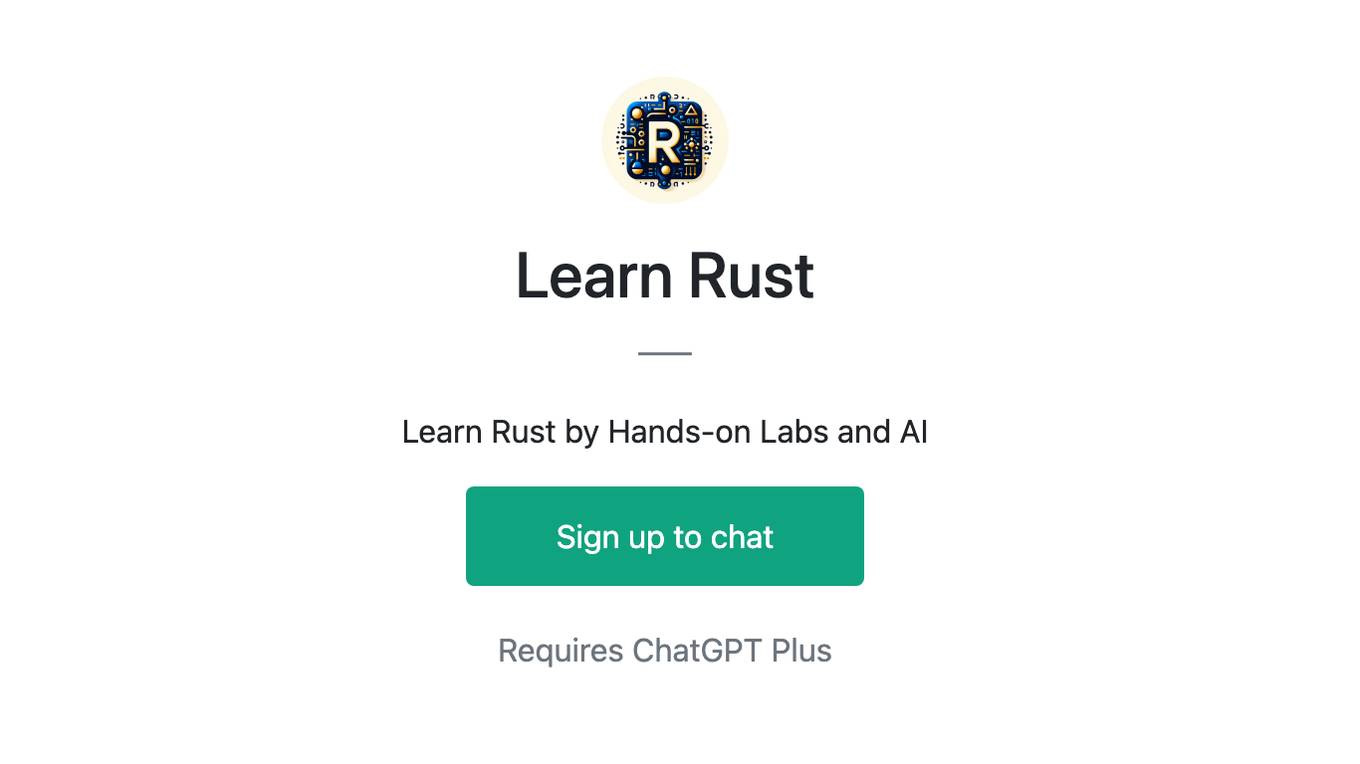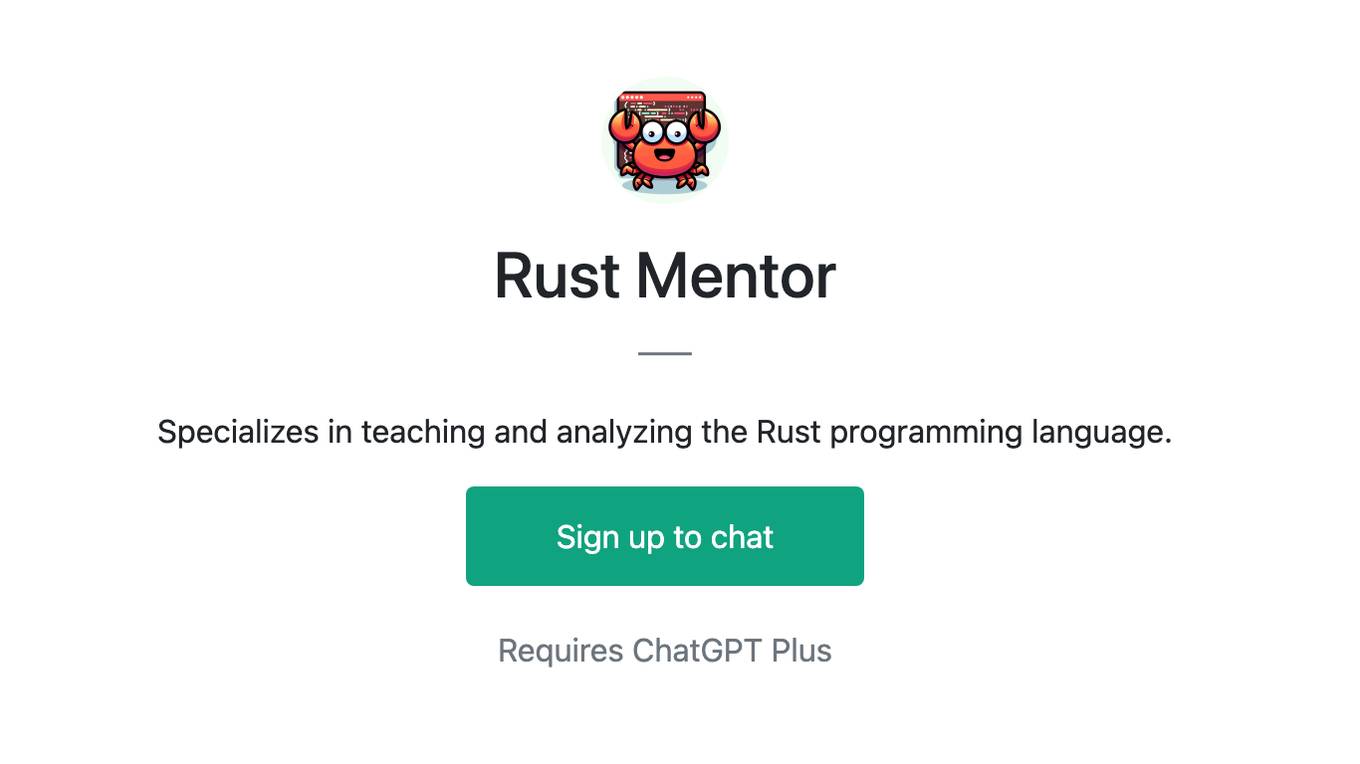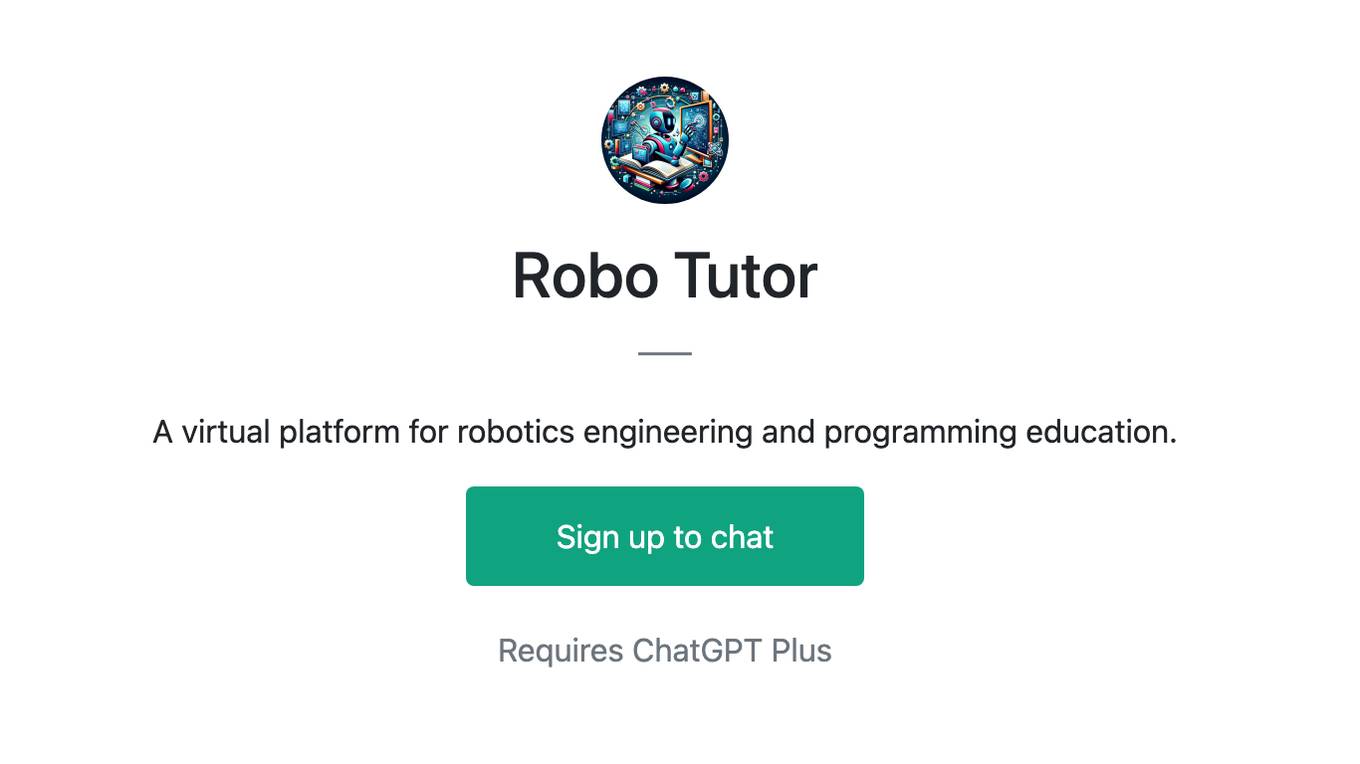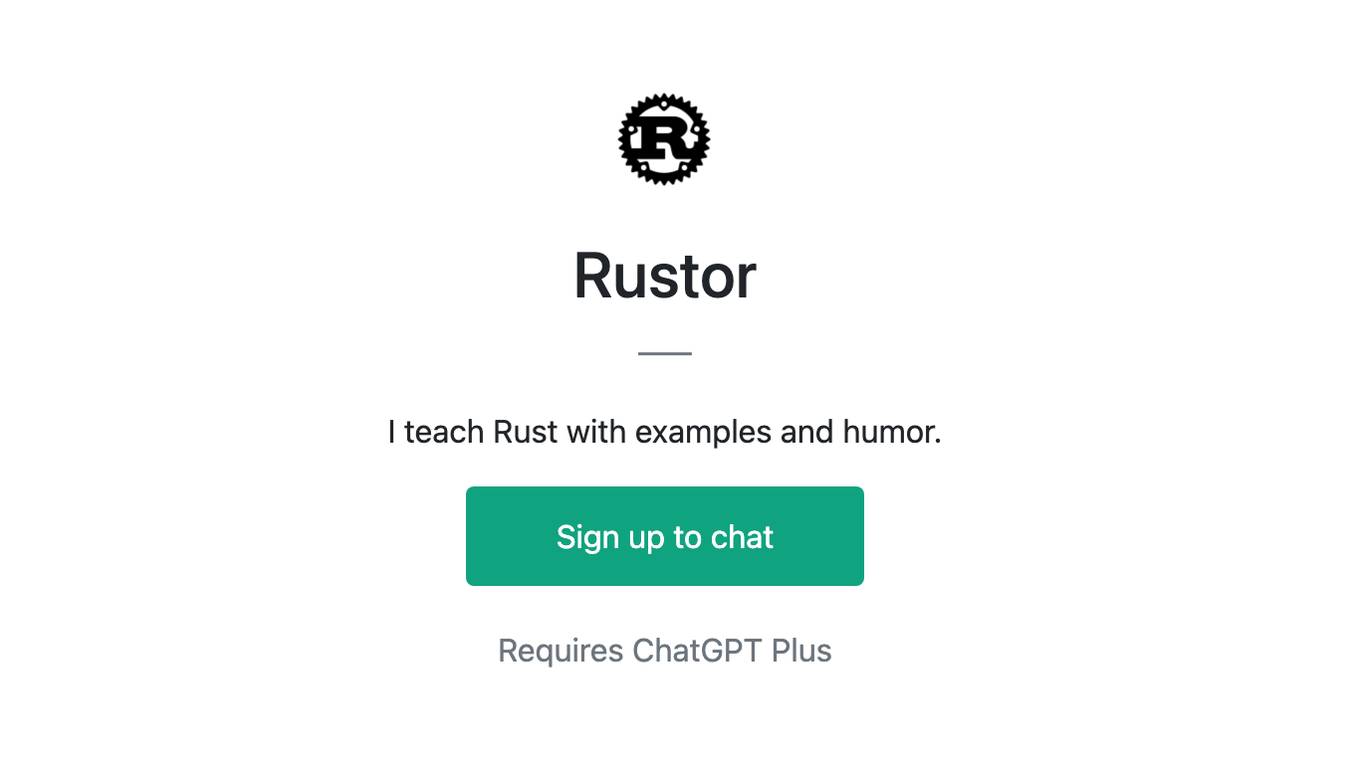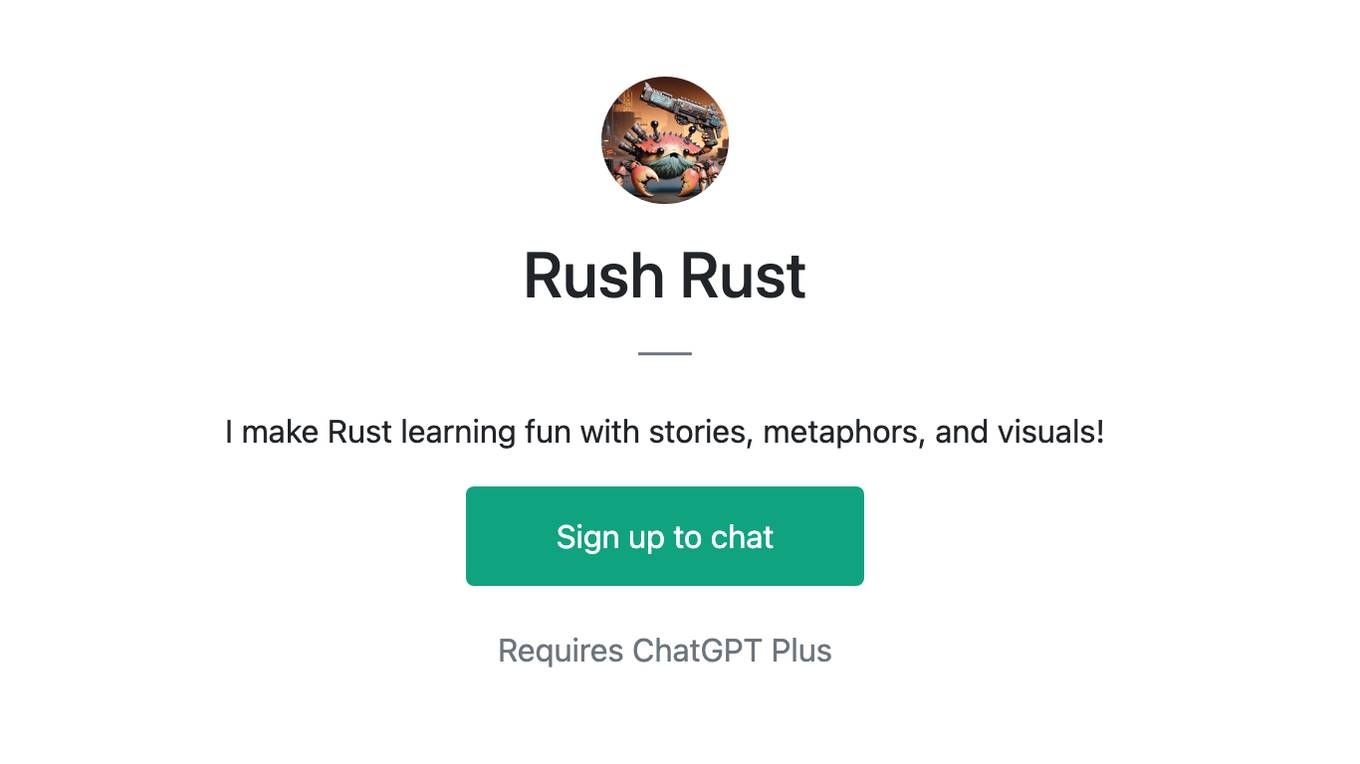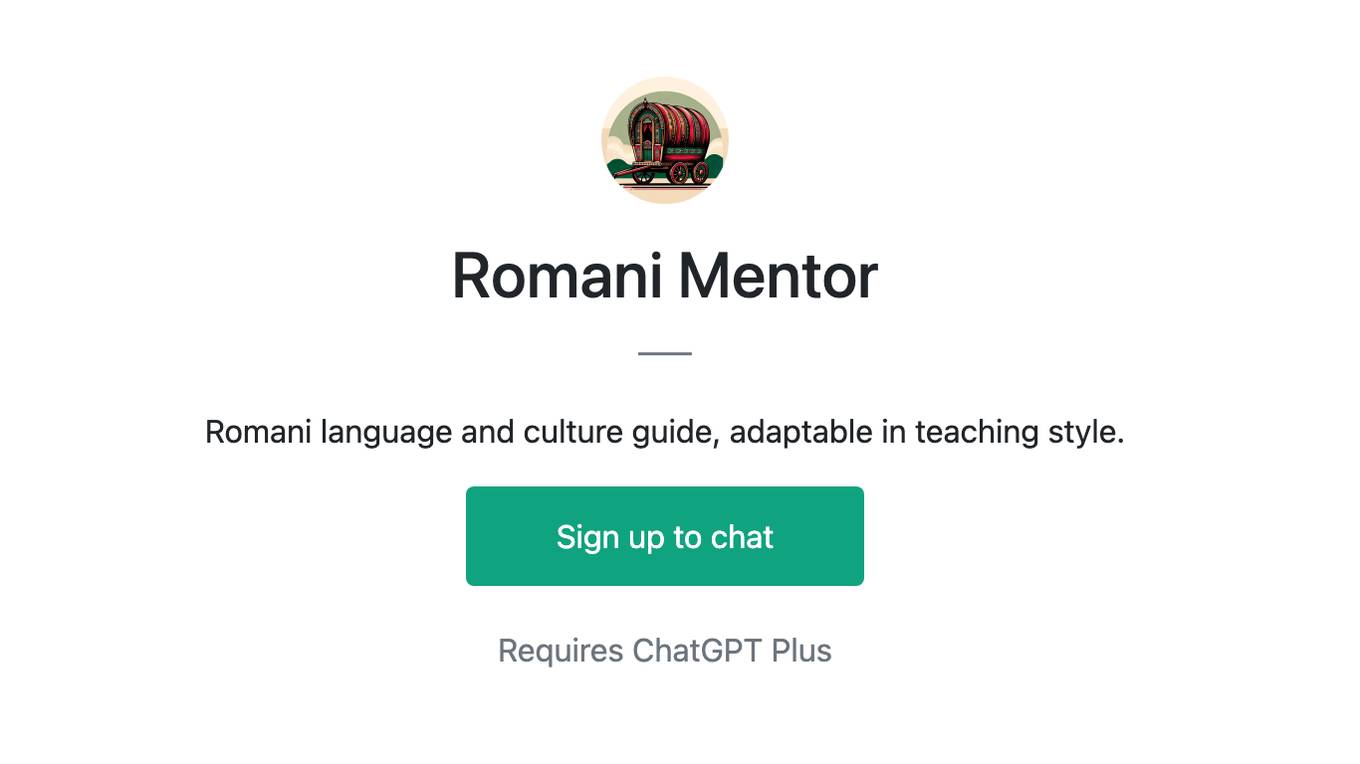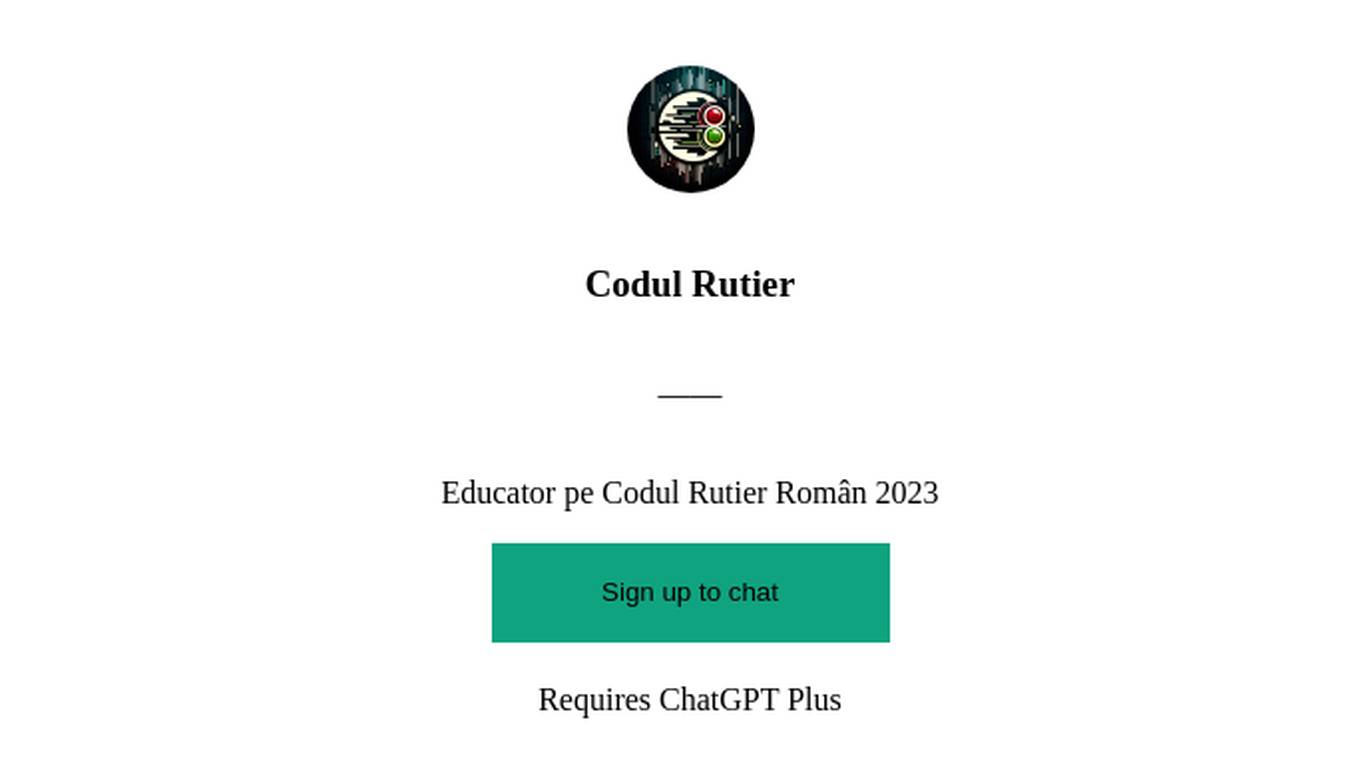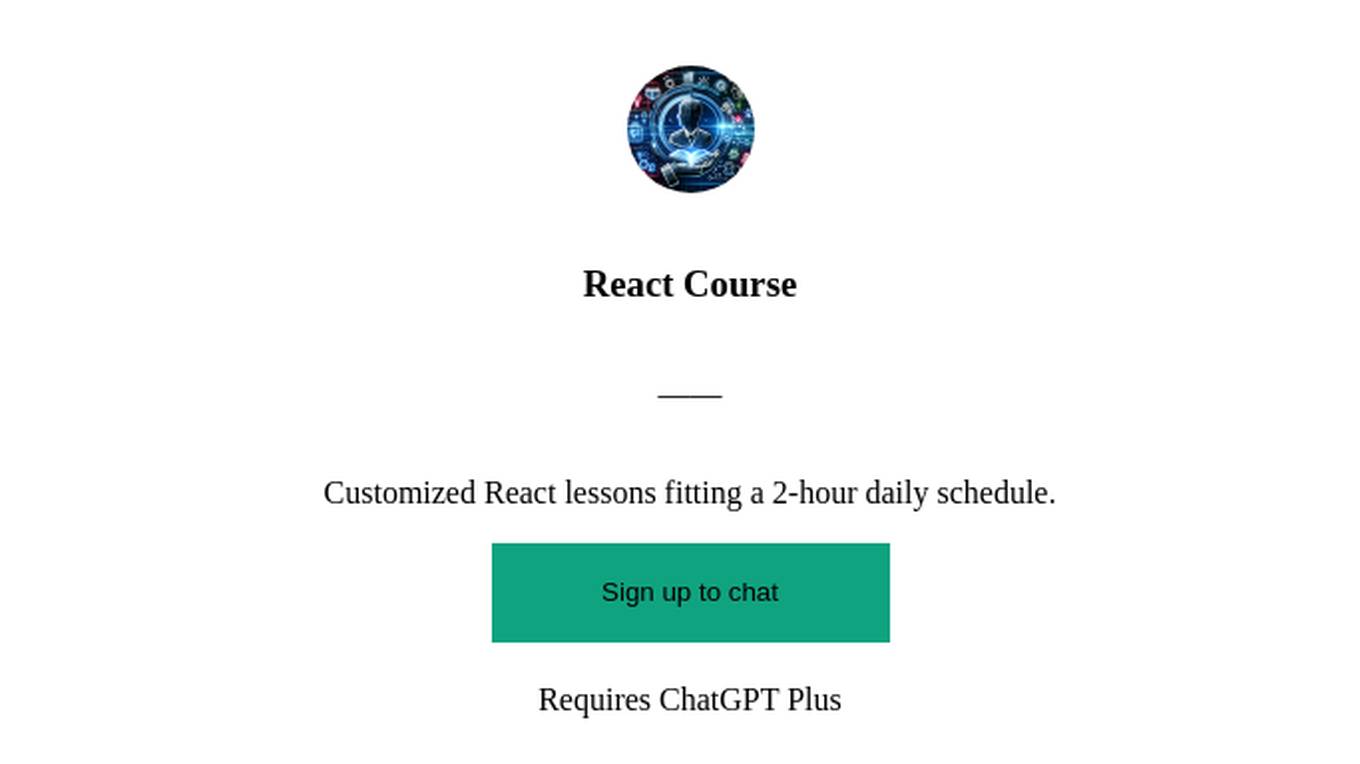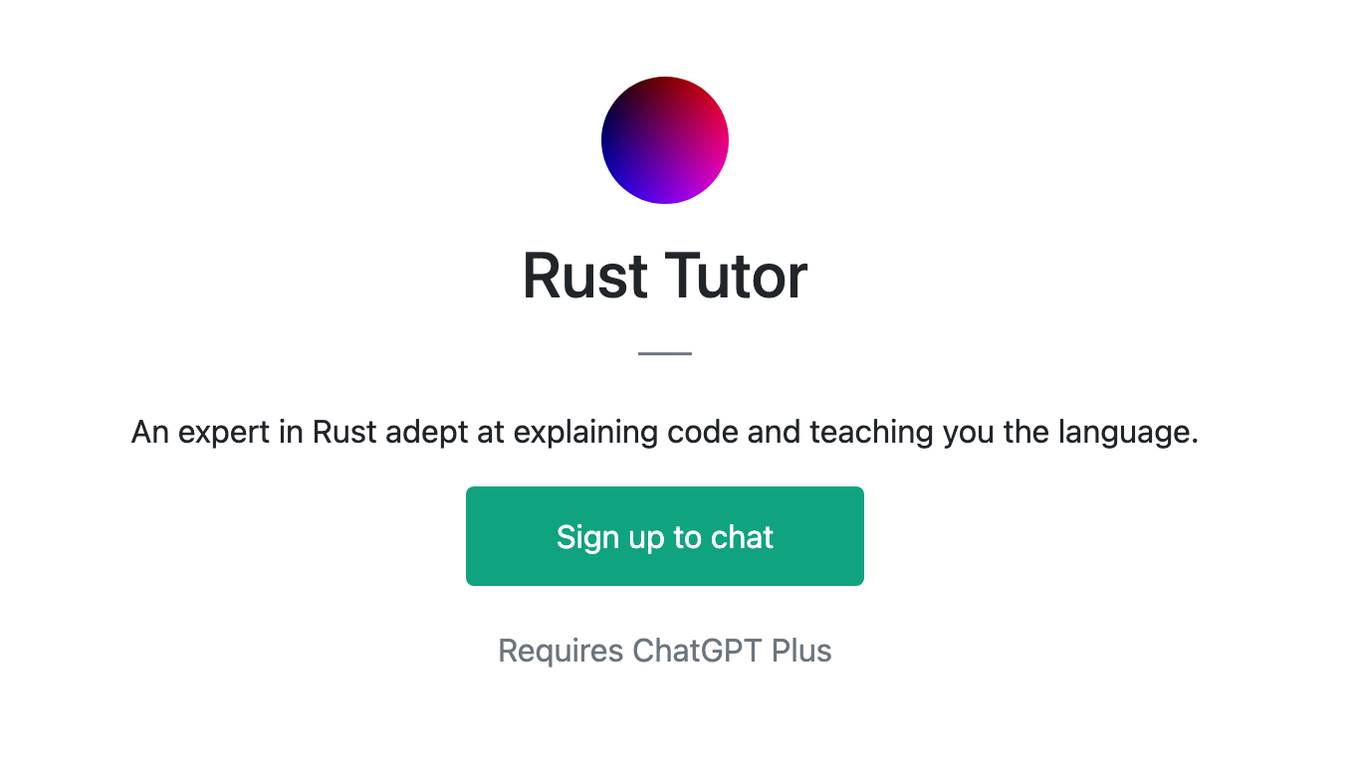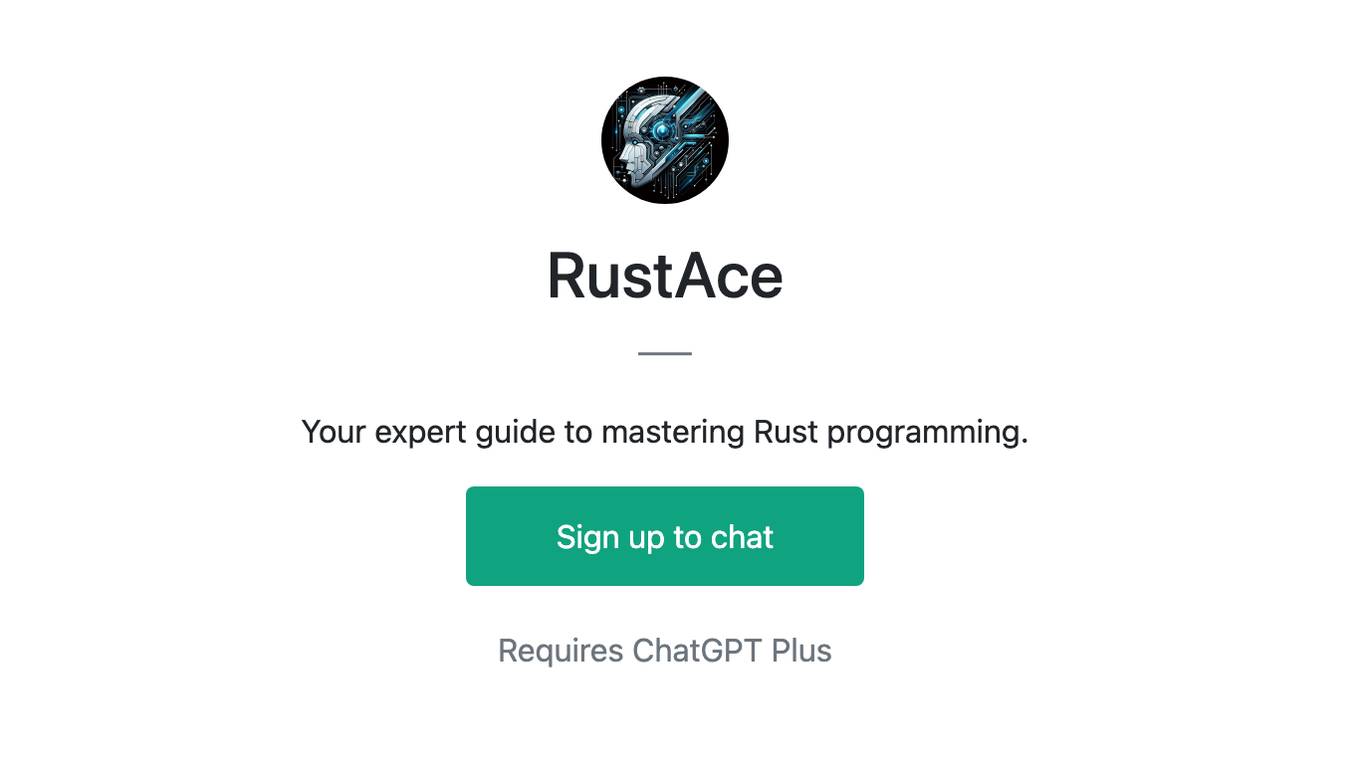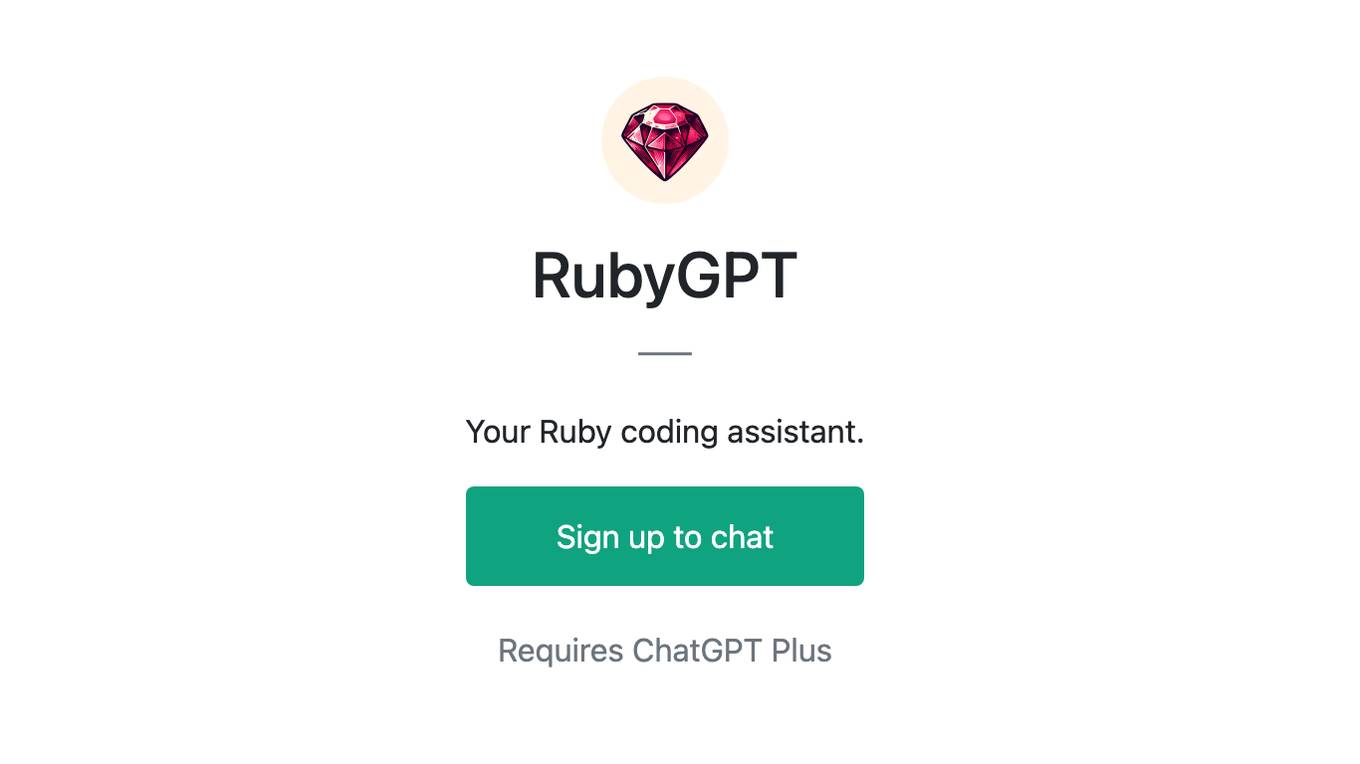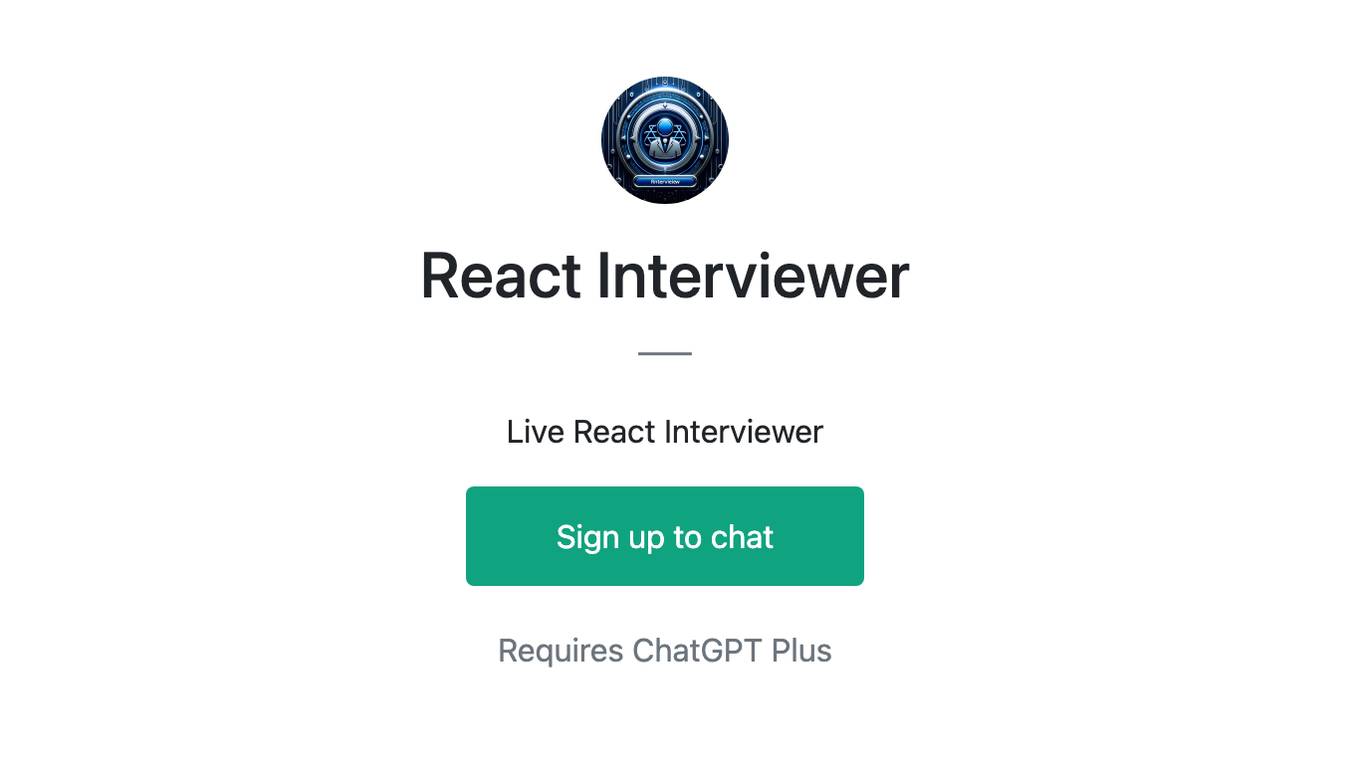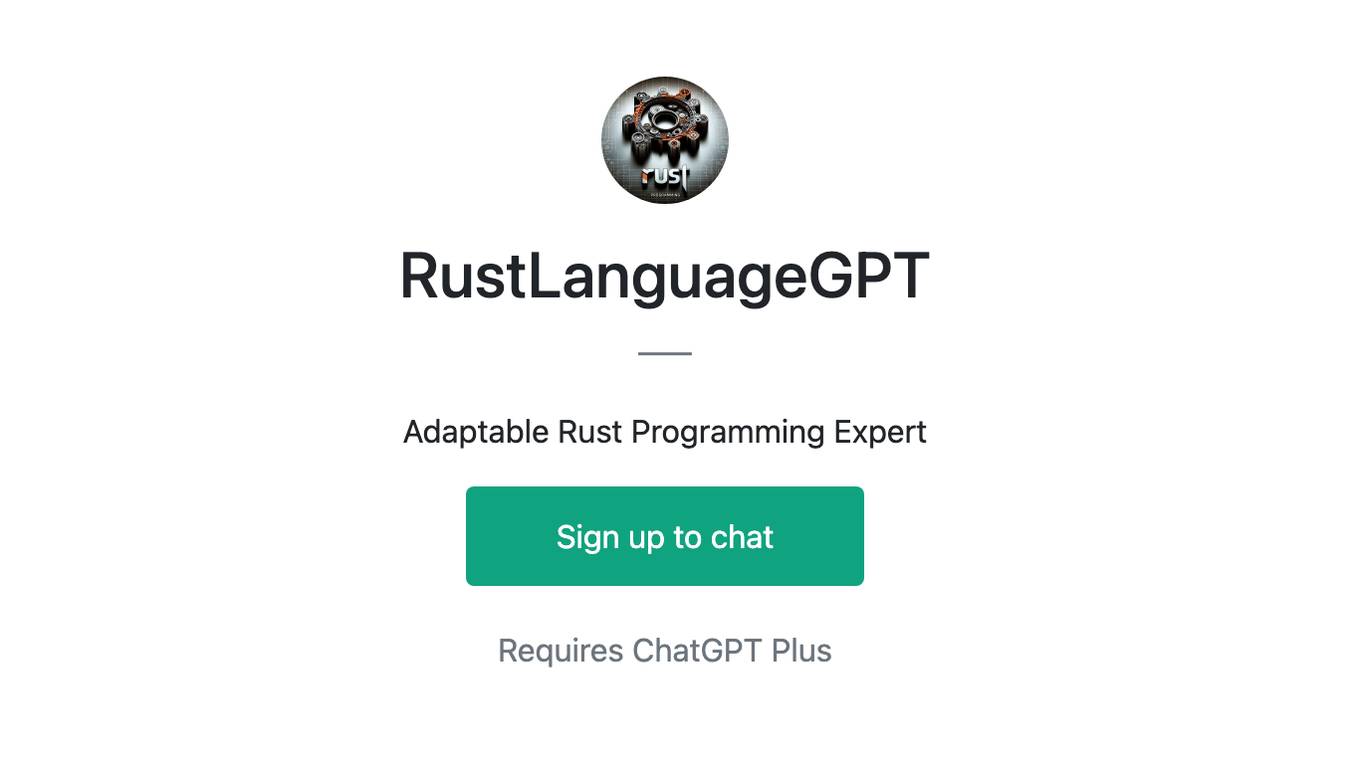Best AI tools for< Learn R >
20 - AI tool Sites
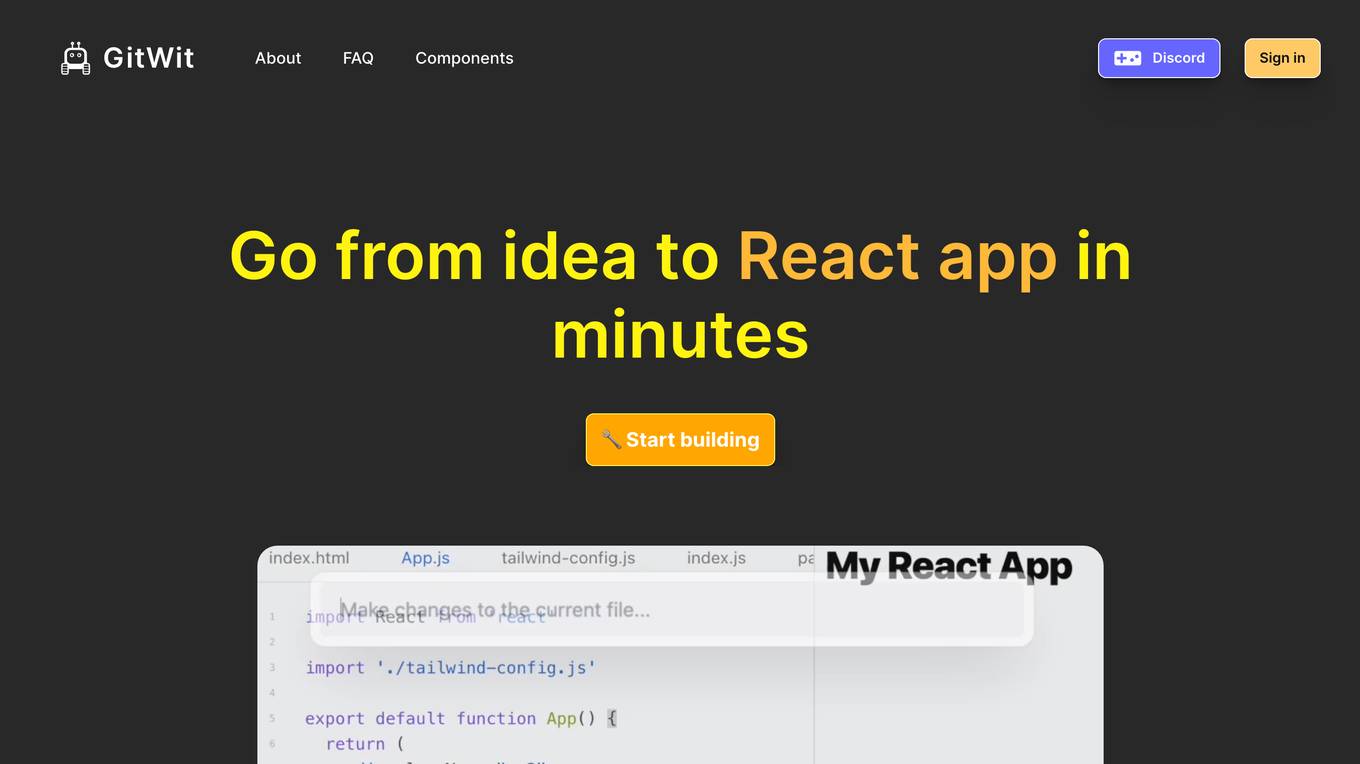
GitWit
GitWit is an online tool that helps you build web apps quickly and easily, even if you don't have any coding experience. With GitWit, you can create a React app in minutes, and you can use AI to augment your own coding skills. GitWit supports React, Tailwind, and NodeJS, and it has generated over 1000 projects to date. GitWit can help you build any type of web app, from simple landing pages to complex e-commerce stores.
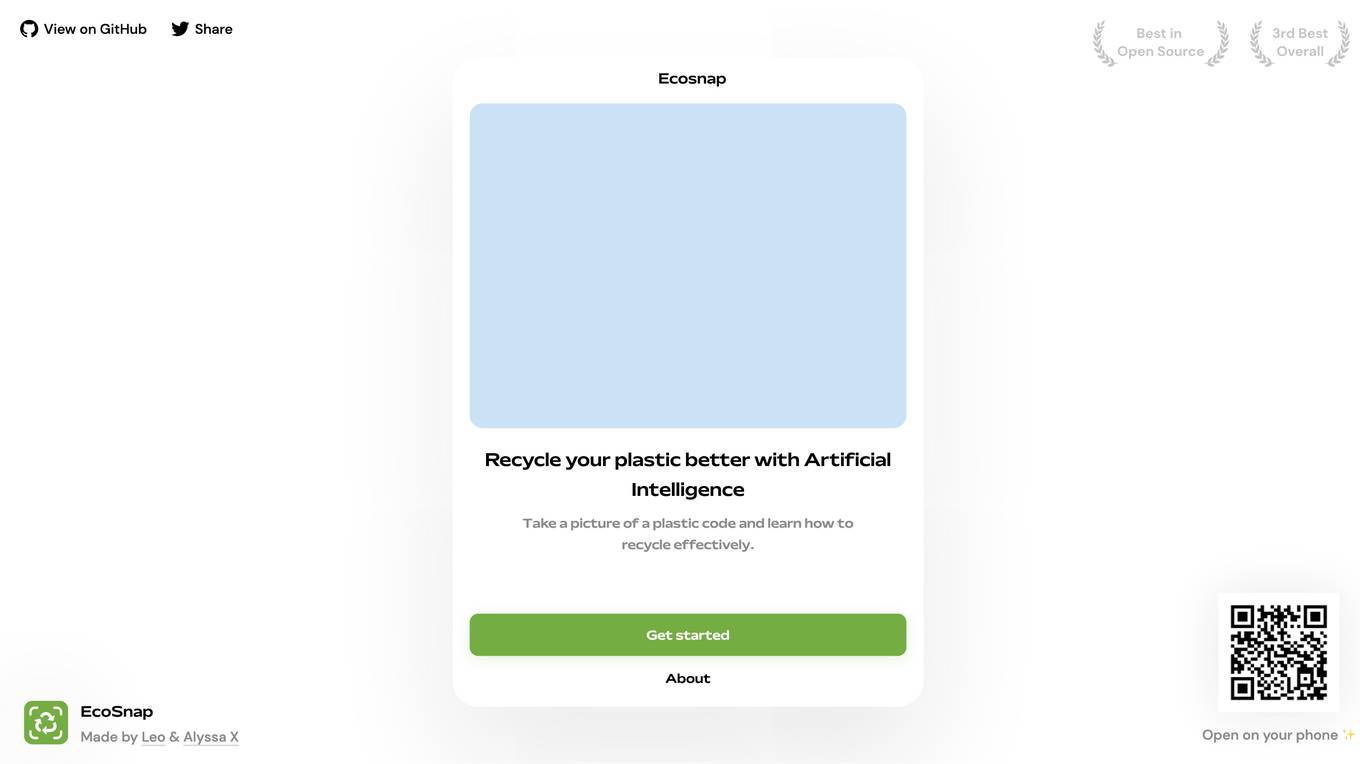
EcoSnap
EcoSnap is an AI tool designed to help users recycle plastic more effectively. By simply taking a picture of a plastic code, users can learn how to recycle the item properly. The tool aims to promote environmental sustainability by providing accurate recycling information based on artificial intelligence technology. EcoSnap is user-friendly and accessible, making it convenient for individuals looking to contribute to a greener planet.

Adventure AI
Adventure AI is an educational platform that offers kids the opportunity to work with cutting-edge AI technology to create games, art, music, and more. The platform provides a social gaming experience within Discord, where kids can engage in self-paced quests related to AI-assisted art, coding AI, and other paths of interest. Adventure AI aims to maximize intrinsic motivation in learning by making the AI tools engaging through games and real-world value creation. The platform also offers different pricing tiers with varying levels of access to AI tools and curriculum, including a community of kids collaborating on AI projects.

Maia
Maia is an AI-powered relationship app designed to help couples improve their communication, resolve conflicts, and explore new date nights. It provides access to relationship theories and allows users to ask Maia anything. The app is available for download and offers exclusive content for subscribers.

Replit
Replit is a software creation platform that provides an integrated development environment (IDE), artificial intelligence (AI) assistance, and deployment services. It allows users to build, test, and deploy software projects directly from their browser, without the need for local setup or configuration. Replit offers real-time collaboration, code generation, debugging, and autocompletion features powered by AI. It supports multiple programming languages and frameworks, making it suitable for a wide range of development projects.
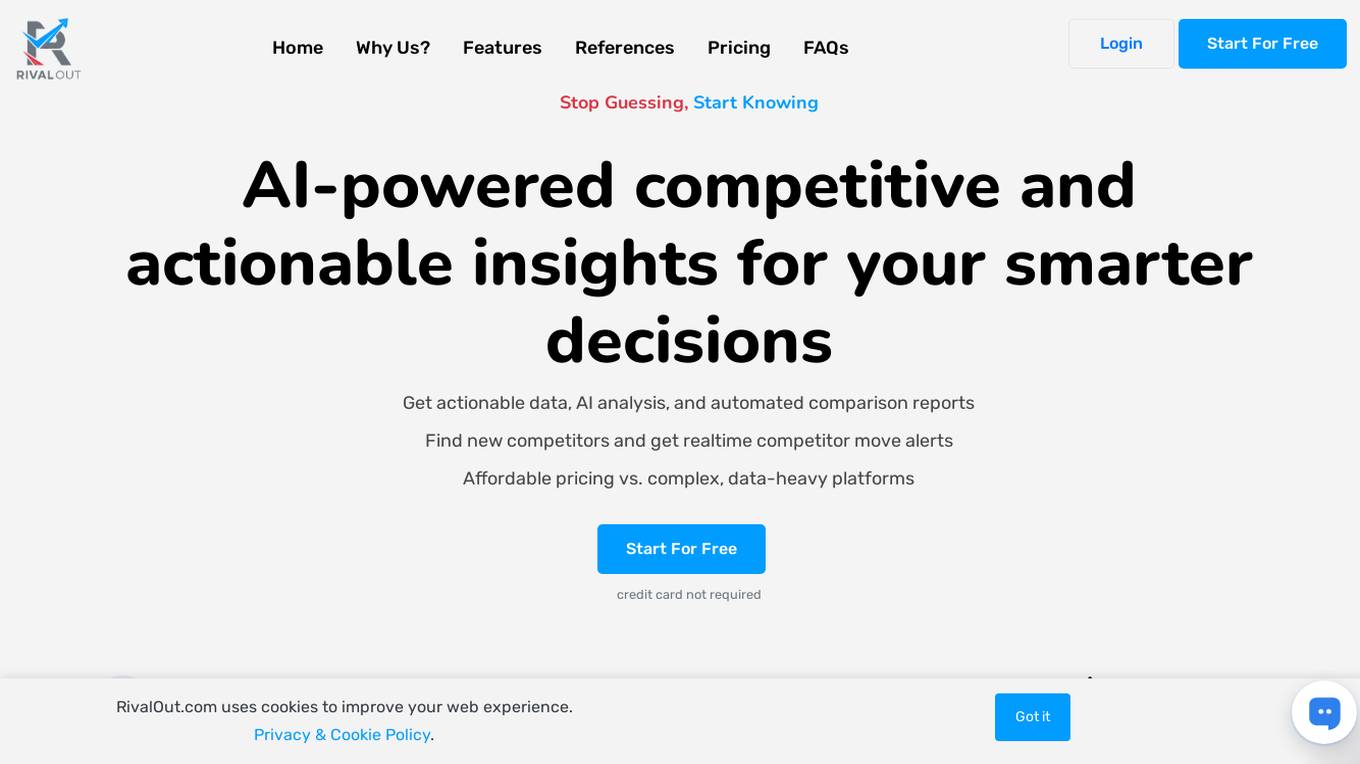
RivalOut
RivalOut is a competitive intelligence platform that leverages AI technology to provide actionable insights for businesses to monitor and analyze their competitors effectively. The platform offers features such as traffic monitoring, SEO analysis, social media tracking, business profile rating, automated reports, and AI-powered competitor analysis. RivalOut aims to simplify competitive analysis by delivering real-time competitor move alerts, identifying new competitors, and offering affordable pricing compared to traditional data-heavy platforms.
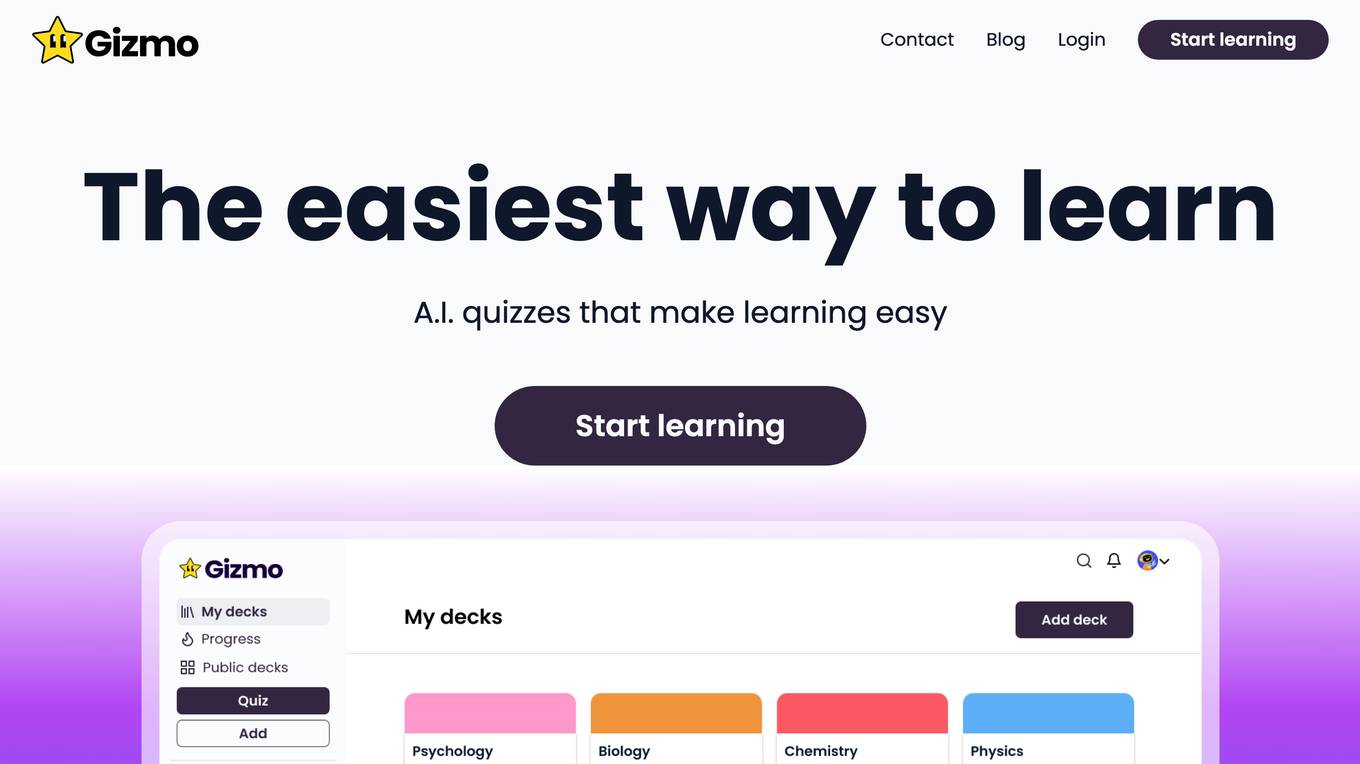
Gizmo
Gizmo is an AI-powered learning application designed to make studying easy and enjoyable for students of all levels. It offers A.I. quizzes that help users learn and retain information effectively. The app is created by Cambridge alumni and has gained popularity among students for its innovative approach to learning. With features like spaced repetition, active recall, and the ability to turn study materials into flashcards, Gizmo aims to enhance the learning experience and improve academic performance.
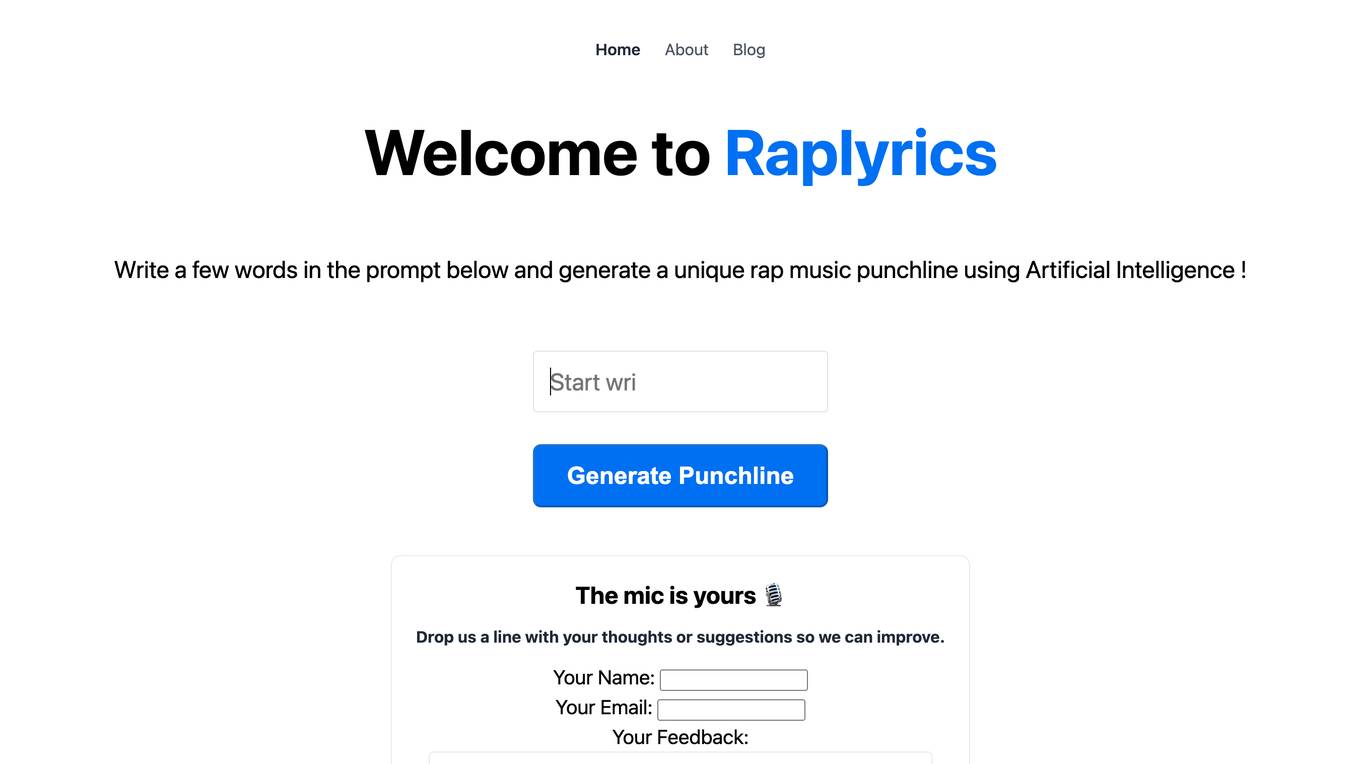
Raplyrics
Raplyrics is a website that uses artificial intelligence to generate rap music punchlines. Users can input a few words into a prompt, and the website will generate a unique rap punchline. Raplyrics also has a blog that features genuine stories about rap music culture and its impact on society. The website also has a learning section that provides information about the behind-the-scenes of RapLyrics, its ML engine, and API.
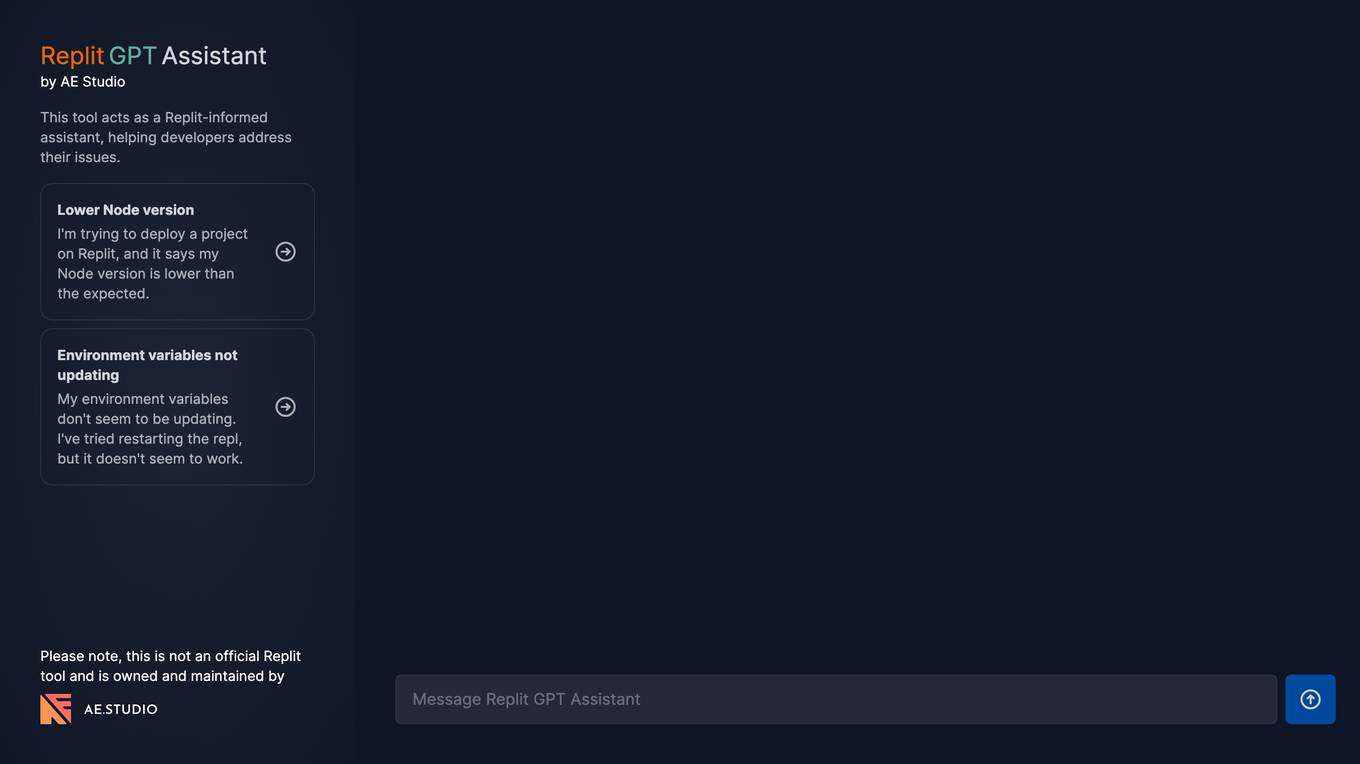
Replit GPT Assistant
Replit GPT Assistant is a tool that acts as a Replit-informed assistant, helping developers address their issues. It provides solutions to common problems faced by developers when using Replit, such as lower Node version errors and issues with updating environment variables.
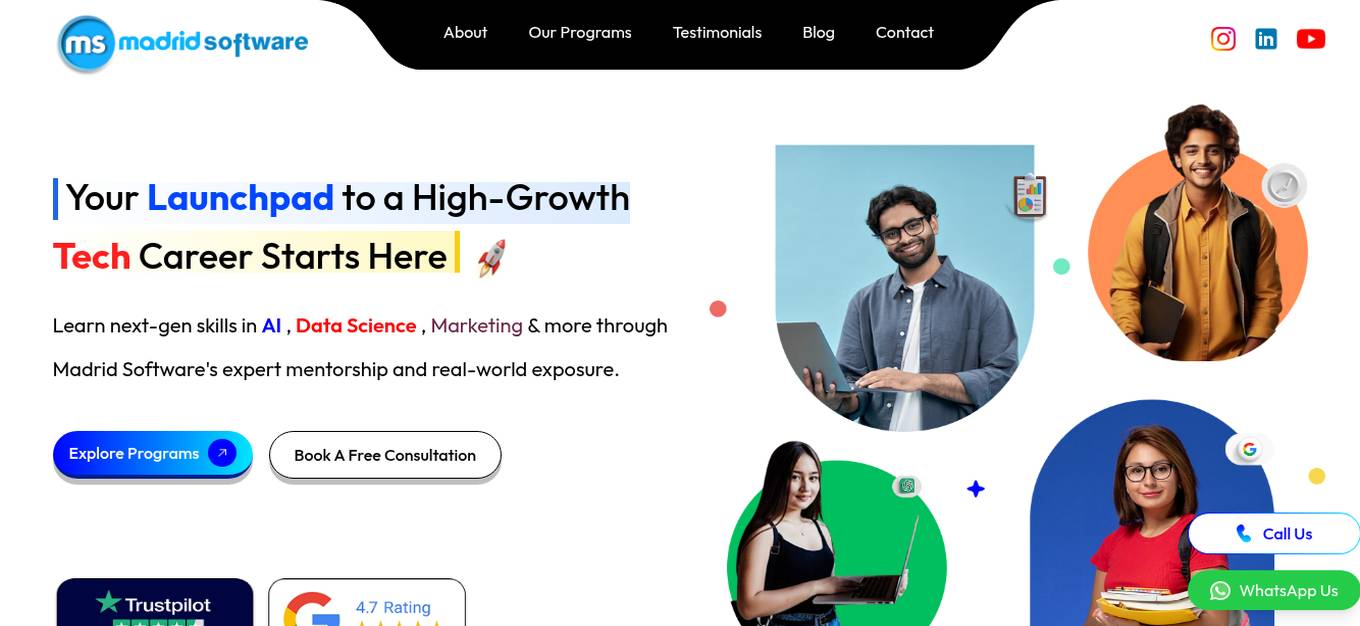
Madrid Software
Madrid Software is an AI education platform offering job-ready tech courses in AI, Data Science, Fullstack Development, and more. The platform provides expert mentorship and real-world exposure to help students acquire next-gen skills in AI, Data Science, Marketing, and other tech fields. Madrid Software's courses cover a wide range of topics such as Data Analytics, Artificial Intelligence, DevOps, Business Analytics, UI/UX Design, Digital Marketing, and Product Management. The platform focuses on hands-on learning, skill development, and job-aligned outcomes to prepare students for high-growth tech careers.
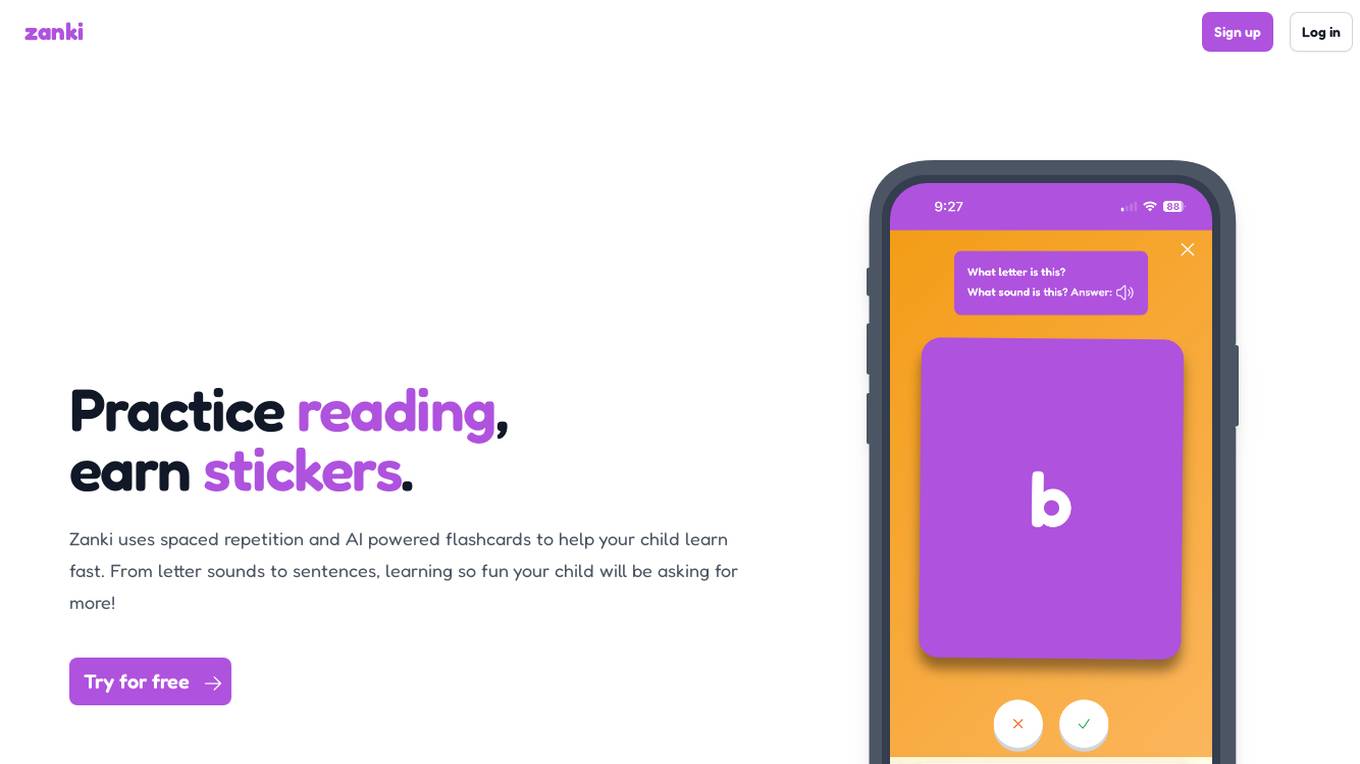
Zanki
Zanki is a phonics-based reading app that utilizes spaced repetition and AI-powered flashcards to help children learn to read quickly and effectively. The app adapts to each child's reading level and interests, making learning fun and engaging. Zanki rewards children with stickers after each review session, keeping them motivated and excited to continue learning.

WashingtonSEO.AI
WashingtonSEO.AI is an AI-powered SEO tool designed to provide comprehensive strategies for Washington businesses to dominate local search results, attract qualified traffic, and achieve sustainable growth through data-driven SEO. The tool focuses on state-specific and local SEO strategies essential for targeting Washington's diverse markets, ranging from bustling urban centers like Seattle to smaller towns. By leveraging advanced SEO techniques tailored explicitly for Washington's unique market dynamics, WashingtonSEO.AI helps businesses outrank competitors, attract more local customers, and generate sustainable growth.
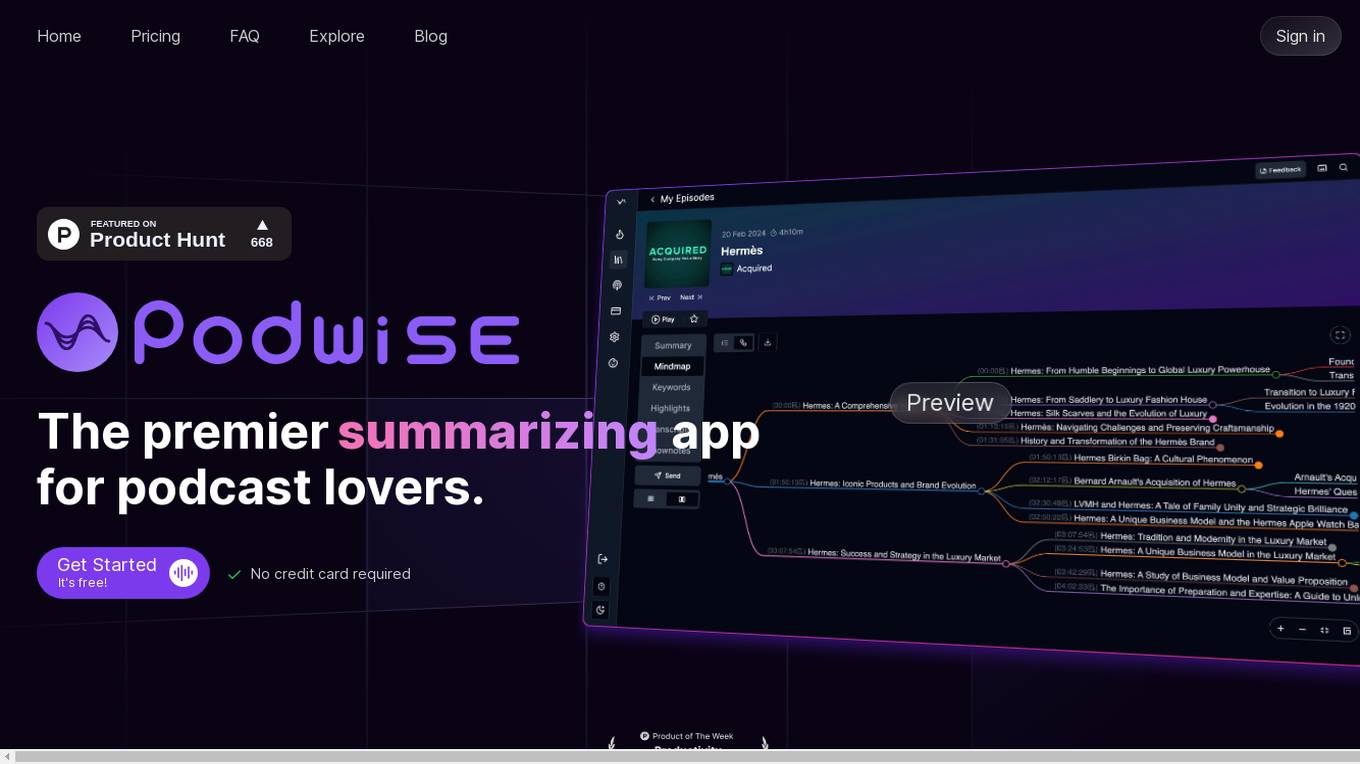
Podwise
Podwise is an AI-powered podcast tool that helps users extract structured knowledge from podcasts. It offers features such as AI-powered summarization, mind mapping, outlining, transcription, and integration with popular knowledge management tools. Podwise aims to enhance the podcast listening experience by providing users with a more efficient and effective way to learn and retain information from podcasts.

M-Wakili
M-Wakili is an AI-powered legal assistant designed to provide instant legal advice, research, answers, and analysis on any legal topic, available 24/7. It caters to lawyers, law students, and the general public, offering accurate and reliable responses based on Kenyan law. M-Wakili aims to revolutionize the legal field by enhancing accessibility and effectiveness of legal expertise, while also aiding in the advancement of law professionals.
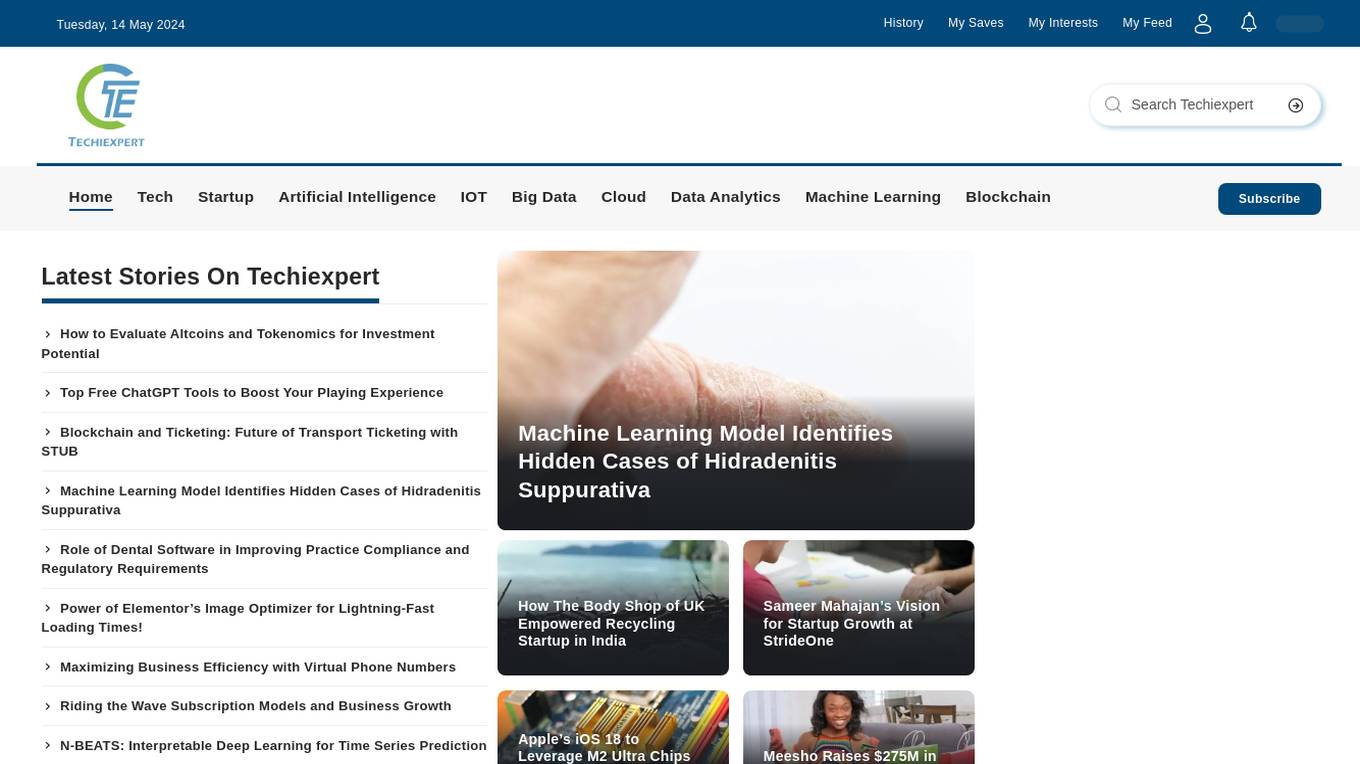
Techiexpert
Techiexpert.com is an AI tool that provides expert views on emerging technologies such as Artificial Intelligence, Internet of Things, Big Data, Cloud Data Analytics, Machine Learning, and Blockchain. The platform offers a wide range of articles, news, and resources related to the latest trends in the tech industry. Users can explore topics like cybersecurity, data science, deep learning, robotics, and more to stay informed and updated on technological advancements.
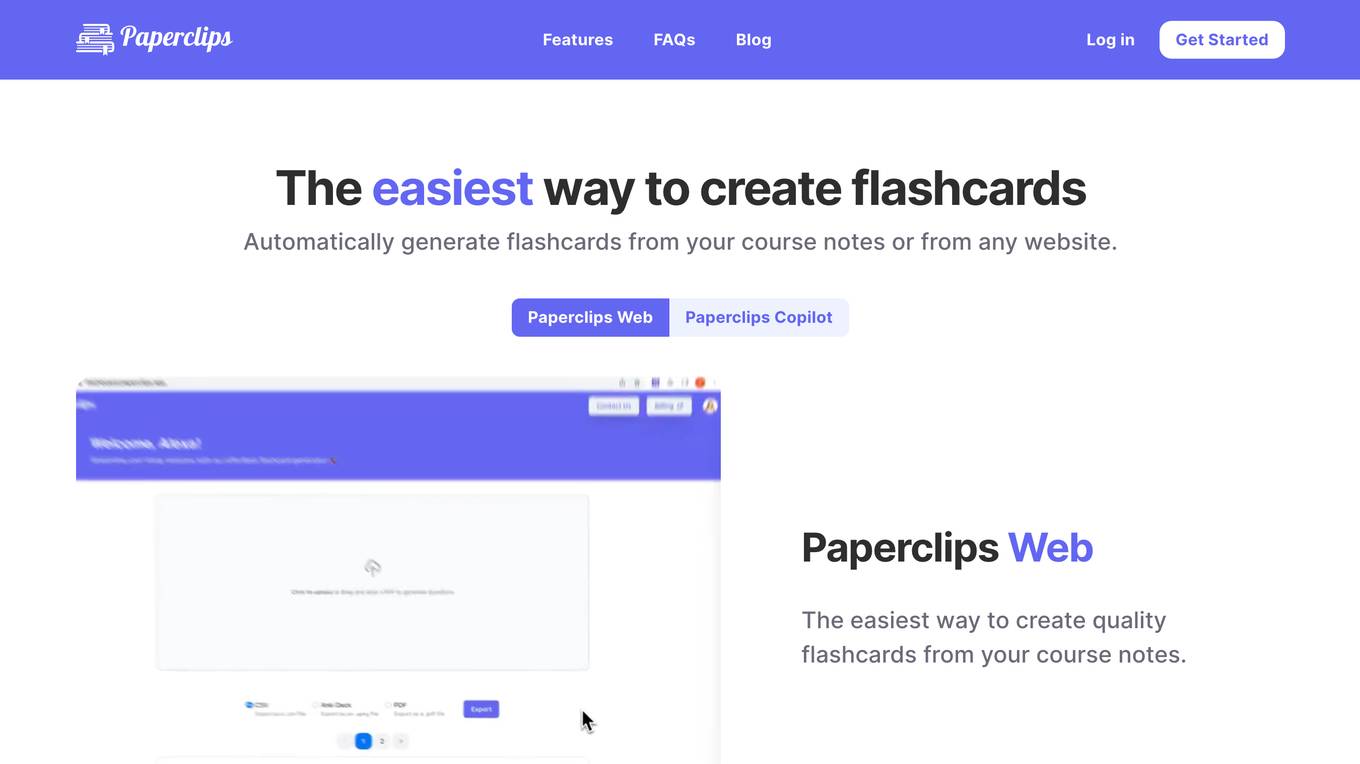
Paperclips
Paperclips is an AI-powered tool that helps users create flashcards from their course notes or any website. It automatically generates flashcards in the same language as the notes, making it easy for users to learn and review material. Paperclips also works with digital notes and can export flashcards to popular platforms like Anki and Quizlet.
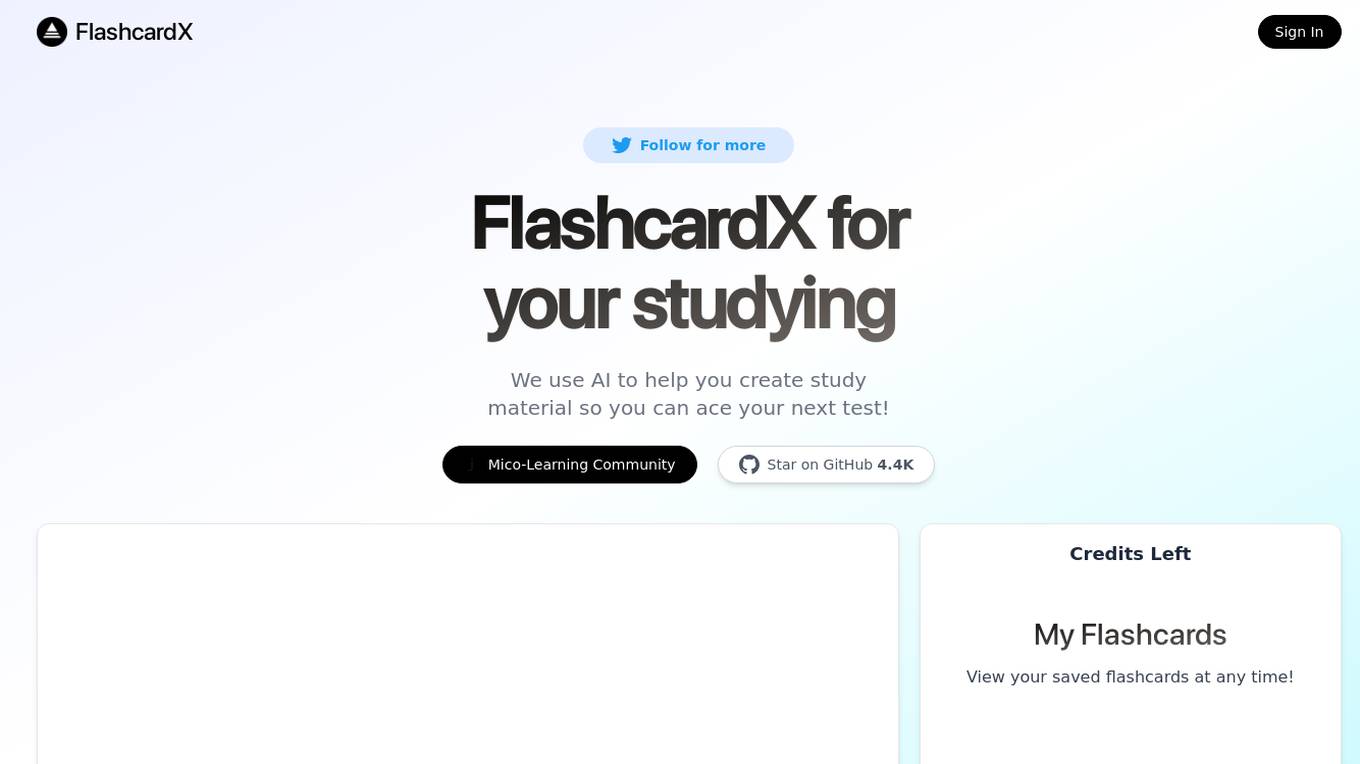
FlashcardX
FlashcardX is an AI-powered study tool that helps users create study materials and ace their tests. It uses AI to generate flashcards from text, articles, and textbooks, and provides users with a variety of study modes to help them learn and retain information. FlashcardX also has a community feature that allows users to share and collaborate on flashcards, and a progress tracking feature that helps users stay motivated and on track.
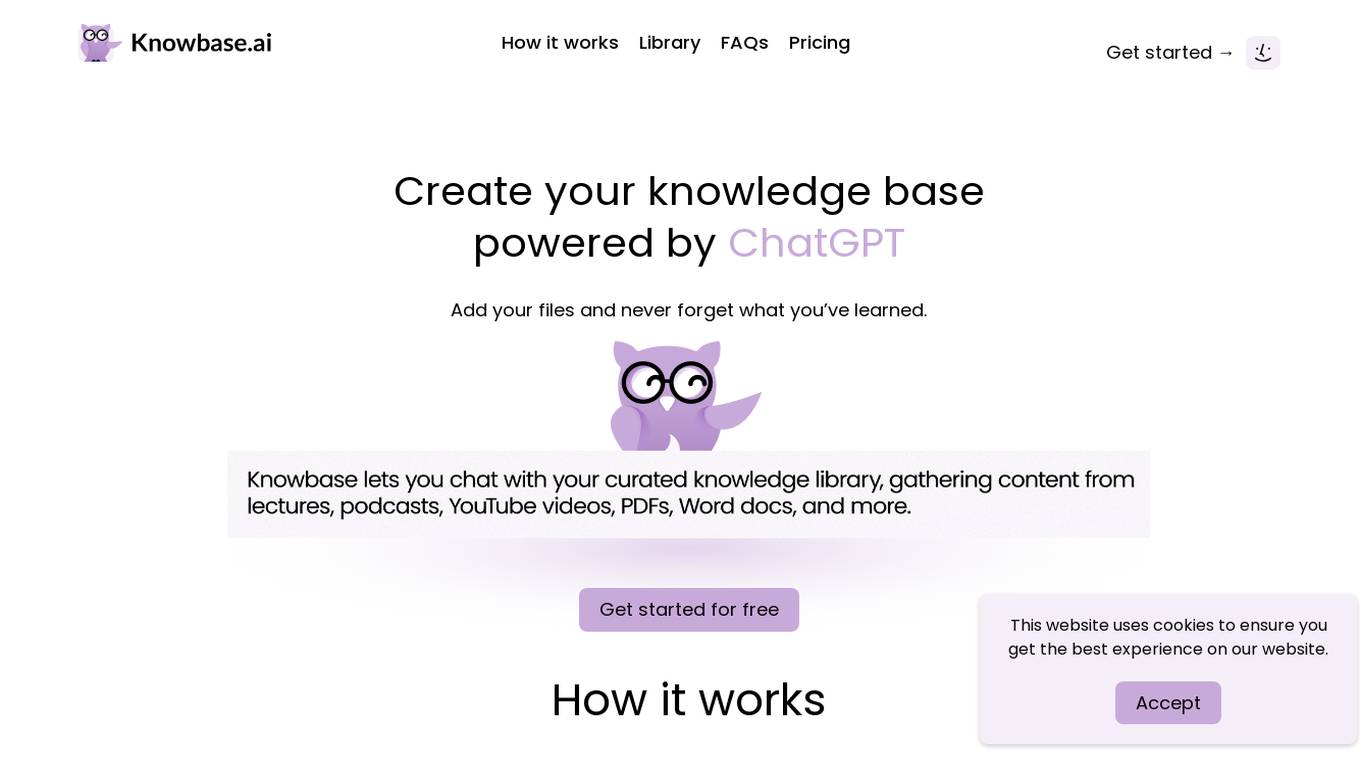
Knowbase.ai
Knowbase.ai is a knowledge management tool that allows users to store, organize, and chat with their knowledge base. It is powered by ChatGPT, which allows users to ask questions about their knowledge base and get answers in a conversational format. Knowbase.ai is designed to help users learn and remember information more effectively.
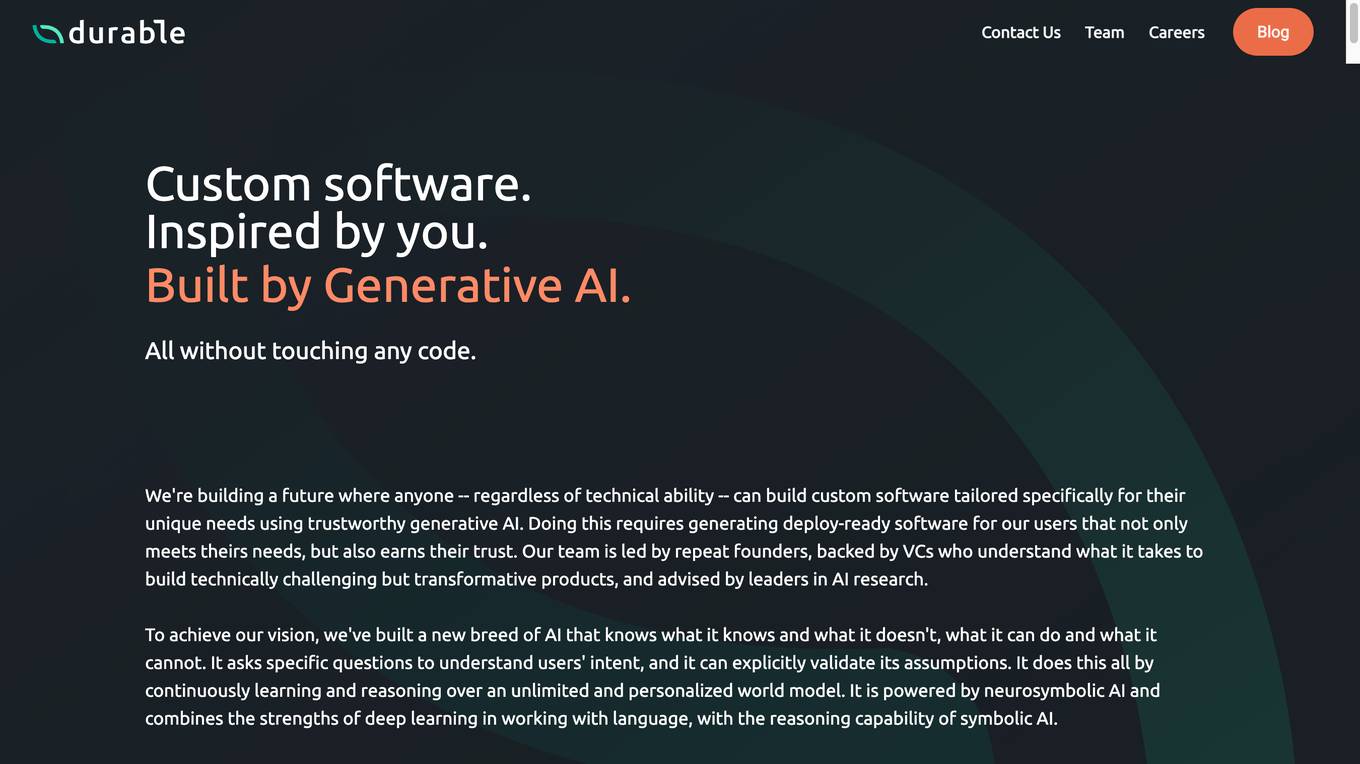
Durable
Durable is a custom software development platform powered by generative AI. It enables users to create tailored software solutions without writing any code. The platform is designed to be accessible to users of all technical abilities and leverages advanced AI techniques to generate deploy-ready software that meets specific user needs and earns their trust. The team behind Durable comprises experienced founders, venture capital investors, and AI research leaders. Their AI technology combines deep learning and symbolic AI to understand user intent, validate assumptions, and continuously learn and reason. Durable is committed to developing the next chapter of AI and welcomes inquiries from driven and enthusiastic individuals interested in shaping the future of software development.
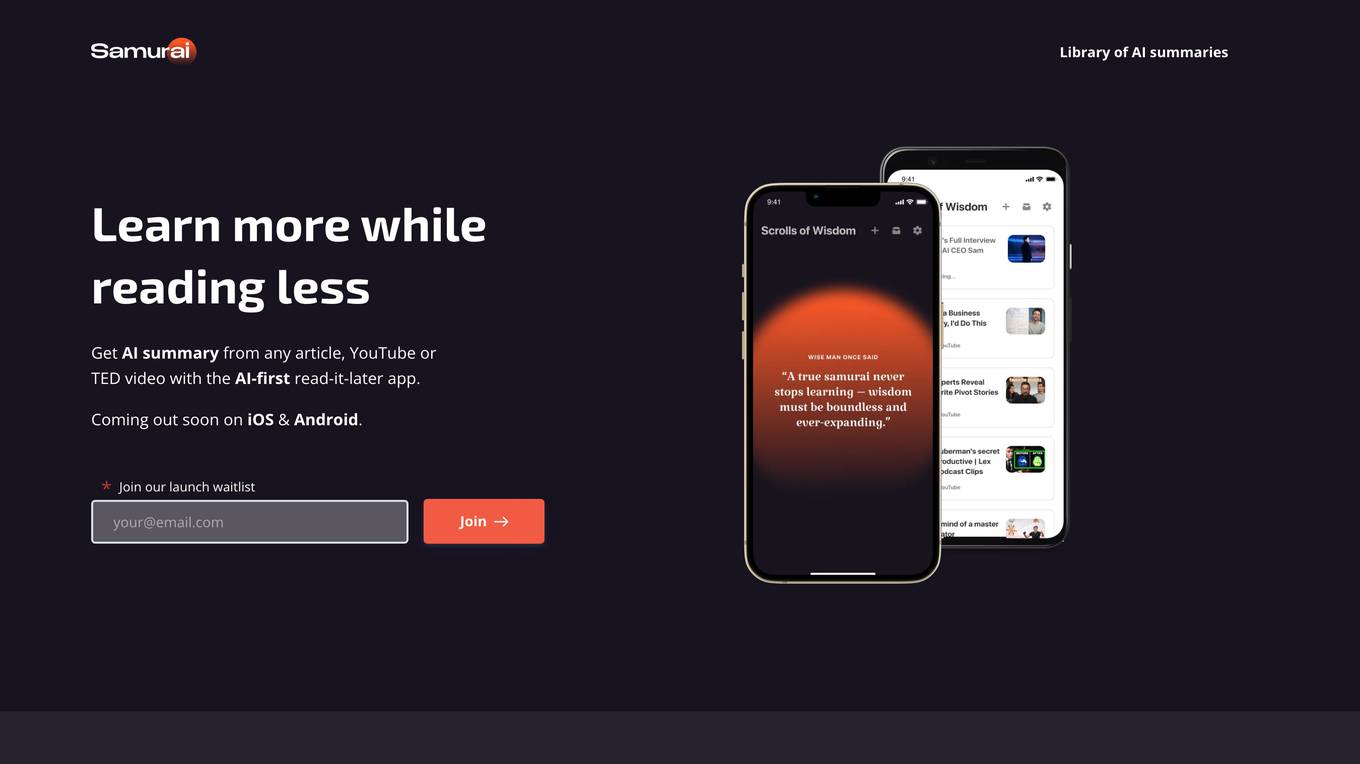
Samurai AI
Samurai AI is an AI-powered read-it-later app that provides users with concise and insightful summaries of articles, YouTube videos, and TED talks. The app is designed to save users time and help them get the most out of their reading and viewing experiences. Samurai AI is still in development, but it is expected to be released soon on iOS and Android devices.
1 - Open Source AI Tools

RTutor
RTutor is an AI-based app that generates and tests R code by translating natural language into R scripts using API calls to OpenAI's ChatGPT. It executes the scripts within the Shiny platform, generating R Markdown source files and HTML reports. The tool features GPT-4 for accurate code, comprehensive EDA reports, and a chat window for code explanation, making it ideal for learning R and statistics.
20 - OpenAI Gpts

RustChat
Hello! I'm your Rust language learning and practical assistant created by AlexZhang. I can help you learn and practice Rust whether you are a beginner or professional. I can provide suitable learning resources and hands-on projects for you. You can view all supported shortcut commands with /list.
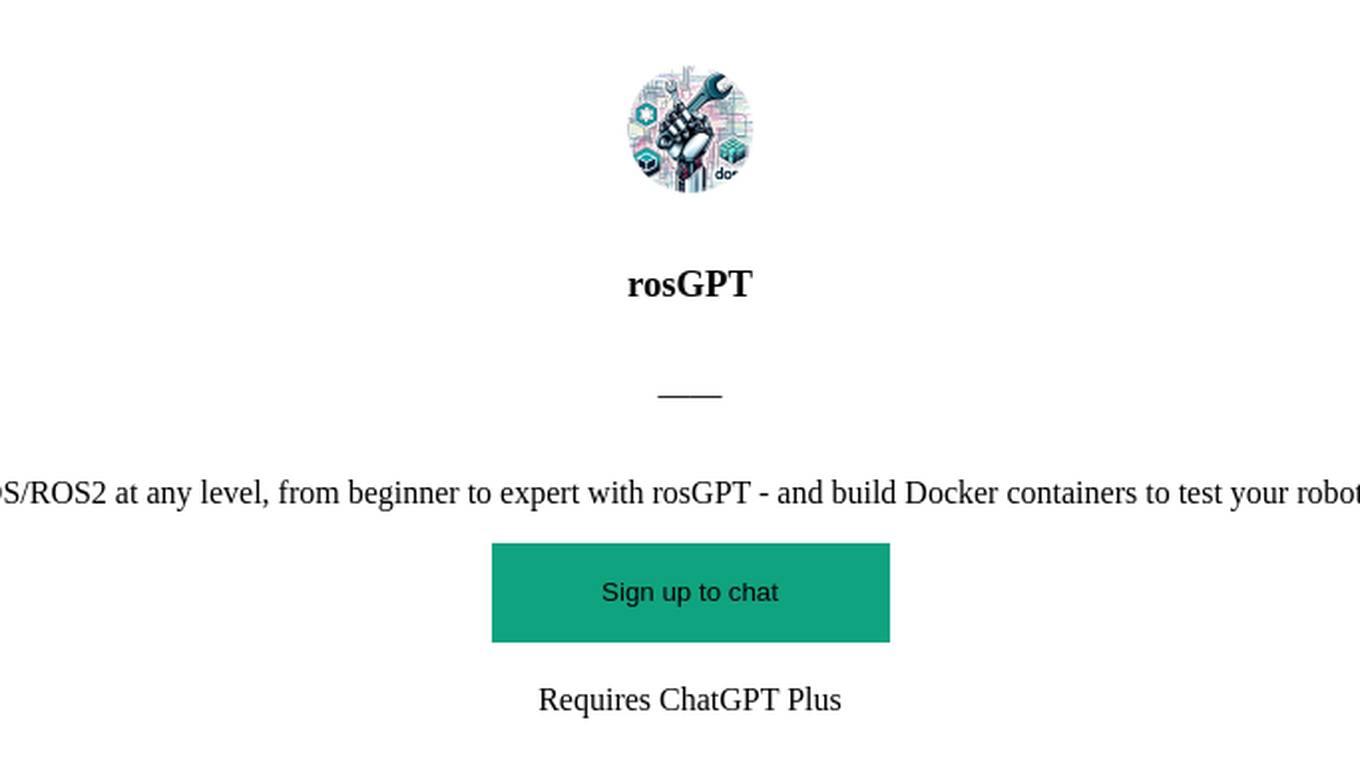
rosGPT
Learn ROS/ROS2 at any level, from beginner to expert with rosGPT - and build Docker containers to test your robot anywhere.
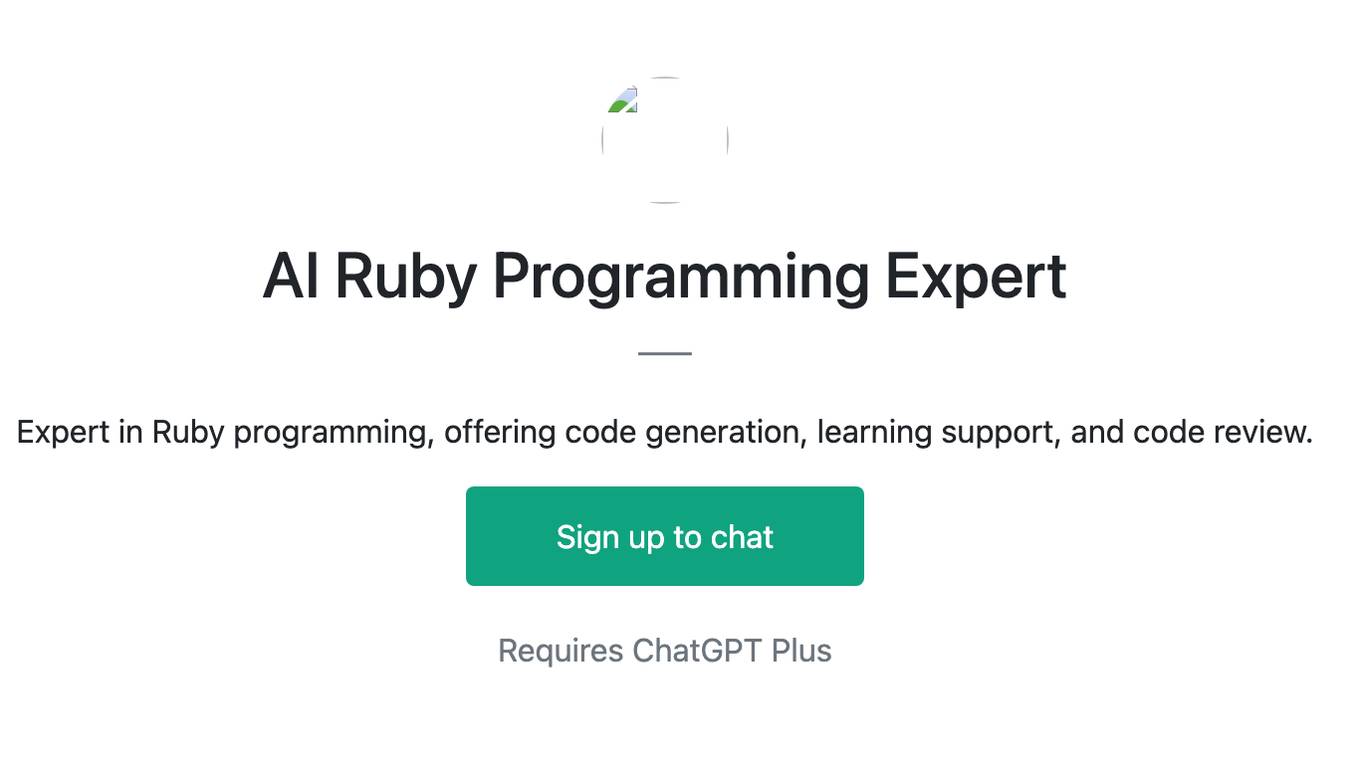
AI Ruby Programming Expert
Expert in Ruby programming, offering code generation, learning support, and code review.
